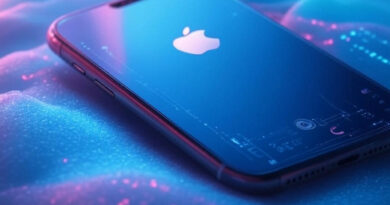Guardians of Cyberspace: Top Cybersecurity Trends and Threats to Watch in 2025
Living in 2025 feels like walking a tightrope made of data and digital connections. Every step we take online carries risks we cannot always see. Cybersecurity has become less of a niche concern and more of a daily reality for everyone, from teenagers scrolling social media to governments managing sensitive files. With so much at stake, understanding where cybersecurity is heading—and the threats waiting around the corner—has never been more important.
The Rise of AI-Driven Cyber Attacks
Artificial intelligence, once a tool mainly used to solve problems, has fallen into the wrong hands too. Hackers now use AI to craft smarter phishing emails, break passwords faster, and find hidden weaknesses in security systems before humans even notice them. They no longer need to spend months learning about their targets—AI does the homework for them in hours.
These smart attacks adapt in real time. If a company strengthens one security wall, the AI looks for another way in almost instantly. In 2025, this growing trend means cybersecurity defenders need to think like chess players, always staying three moves ahead.

Deepfake Dangers in a Connected World
Five years ago, deepfakes were mostly amusing. A funny video here, a celebrity joke there. Not anymore. In 2025, deepfakes are weaponized. They create fake video or audio of CEOs, politicians, or even your neighbor, saying things they never actually said.
Imagine getting a voicemail from your boss telling you to send money to a “new account”—and it sounds exactly like them. Scary, right? Protecting against deepfake scams now requires training people to trust their instincts, not just their ears and eyes.
Cybersecurity Skills Shortage
While threats grow faster, skilled defenders aren’t keeping up. Across the world, companies scramble to hire cybersecurity experts, but there just aren’t enough hands on deck. It’s like building a dam during a flood—you need more workers, but only a few know how to work with the materials.
As a result, businesses now invest more in training regular staff to spot attacks early. Cybersecurity is no longer the IT department’s lonely burden. It’s everybody’s business.
Ransomware Targets Critical Infrastructure
Hospitals. Power plants. Water supplies. Hackers don’t just aim for rich companies anymore. They target the systems people depend on to survive.
In 2025, ransomware attacks on these lifelines have doubled. Hackers know governments and companies cannot afford delays when lives are on the line. So they demand huge ransoms, often paid in cryptocurrency, while victims have no choice but to comply quickly to prevent disaster.
Countries now treat these attacks like acts of war. New laws and cybersecurity task forces spring up to fight back. But the war is far from over.
Zero Trust Becomes the New Normal
Trust no one. Not even yourself. That’s the new security motto.
Zero Trust architecture exploded in popularity by 2025. Companies assume every device, user, and software connection could be a threat. Instead of giving broad access to trusted users, systems now constantly verify identities, monitor behaviors, and limit access based on real-time need.
It might feel a little invasive at first. Constant checks, constant passwords. But in a world where hackers are always knocking on the door, double-checking everyone inside the house just makes sense.
Quantum Computing’s Double-Edged Sword
Quantum computers used to sound like science fiction. Now, they’re getting real. By 2025, researchers achieved breakthroughs that make quantum computers powerful enough to crack today’s encryption methods in record time.
Good news? New types of quantum-resistant encryption are being developed at a breakneck pace.
Bad news? Hackers are racing to gather as much encrypted data as possible now, storing it for later when they can break it open with quantum machines. It’s like stealing a safe today knowing you’ll get the key tomorrow.
IoT Devices: Little Things, Big Problems
Smart refrigerators. Doorbell cameras. Fitness trackers. These tiny connected devices—part of the “Internet of Things”—have exploded across homes and cities alike. But every new gadget is another doorway hackers can use.
Manufacturers sometimes rush products to market without building strong security in. In 2025, hackers take full advantage, using poorly protected gadgets as stepping stones into bigger, juicier targets like corporate networks or government systems.
Fixing this means pushing for better standards and making sure security isn’t an afterthought.
Privacy Wars: Governments vs. Big Tech
As digital surveillance grows, governments and tech giants clash more openly over who controls data. Should your messages stay private? Should the government be able to scan encrypted apps for illegal activity?
By 2025, the debate heated up. New laws emerged, both restricting and demanding more data sharing. Tech companies face heavy pressure to cooperate with law enforcement while balancing the trust of their users. Meanwhile, users themselves grow savvier about encrypting their own data and using privacy-first apps.
The battle for privacy is no longer a backroom issue—it’s part of everyday life.
Cybersecurity Insurance: No Longer Optional
Imagine trying to run a business without car insurance. Sounds risky, right? Well, in 2025, cybersecurity insurance has become just as essential.
Insurers, however, got tougher too. They demand higher security standards before offering coverage. Companies that do not show solid protection systems often find themselves paying way more—or getting denied altogether. Cybersecurity isn’t just about protection anymore. It’s about proving you deserve protection.
What Lies Ahead
2025 has taught us that cybersecurity isn’t about fear. It’s about preparation. It’s about understanding that digital threats will always exist, so the goal isn’t to eliminate risk completely but to manage it smartly.
Ordinary people now hold power too. Learning how to recognize phishing attempts, updating devices regularly, being cautious about what you share online—these simple habits form a strong first line of defense.
Guardians of cyberspace aren’t just tech wizards in dark rooms anymore. They’re you, me, and everyone willing to stay alert in a world that changes faster than ever.




